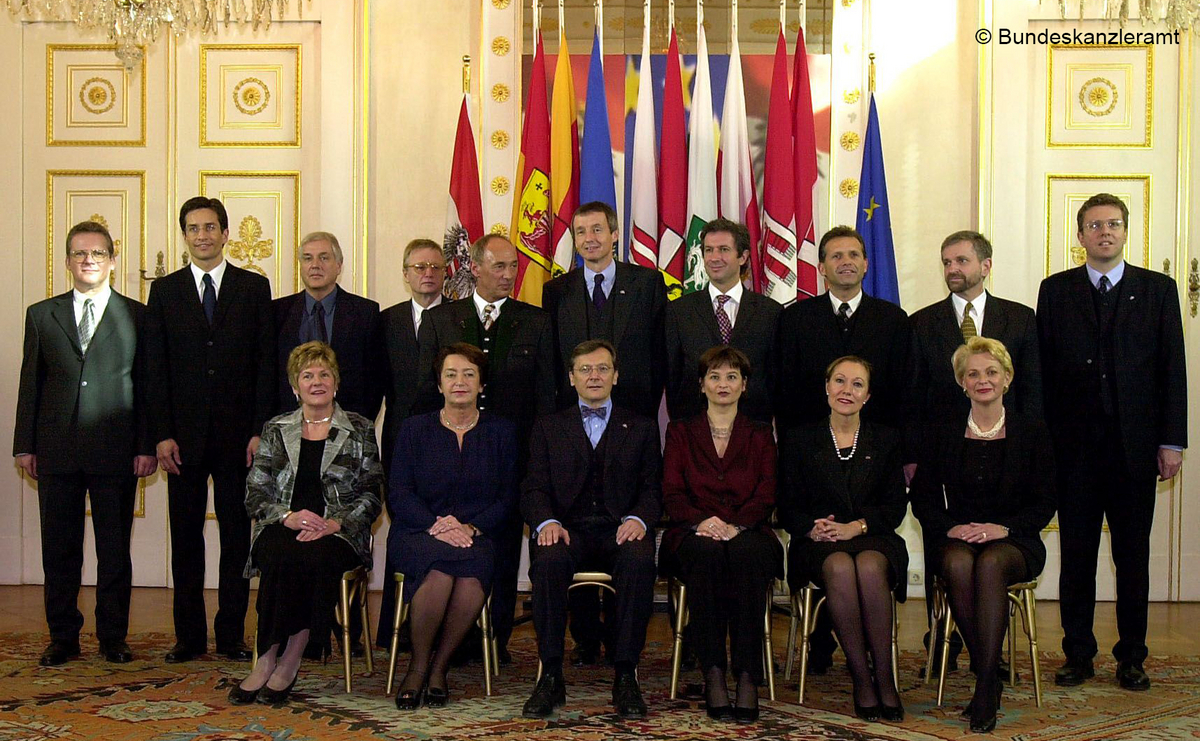
GOVERNMENT PARTICIPATION 2000
In 1999, the FPÖ under Jörg Haider achieved its best-ever result at a National Council election. After decades of red-black governments’ patronage economics (“Proporzwirtschaft”), there was a blue participation in government. On 4 February 2000, amid international protest, the black-blue "Government of Change" (Wende-Regierung) was sworn in.
Under Jörg Haider, the FPÖ was in the 1990s able to perform an unprecedented rise. After the National Council elections in autumn 1999, the heavily-defeated SPÖ negotiated with the ÖVP, but could not reach an agreement.
ÖVP Chairman Wolfgang Schüssel, whose party was a close third behind the FPÖ, therefore entered into coalition negotiations with the latter. In spite of massive international protests against the participation of the Freedom Party in government, in February 2000, the so-called "Government of Change" (the "Schüssel I" government) was sworn into office. It was the first government coalition between the ÖVP and FPÖ (black-blue).
This was followed domestically by the so-called "Thursday demonstrations", and at the European level, the other 14 EU Member States imposed sanctions against the Austrian Federal Government. This was an unprecedented step on the part of the European Union, which set up a so-called "Council of Wise Men", thereby placing Austria under observation. This Council of Wise Men later recommended that the sanctions be lifted.
Susanne Ries-Passer became Vice-Chancellor and Minister for Public Services and Sport. Karl-Heinz Grasser, who switched to the ÖVP two years later, was appointed Minister for Finance, while Herbert Scheibner became Minister for Defence. Michael Krüger – and later Dieter Böhmdorfer – held the position of Minister for Justice. The Ministry for Social Affairs was first headed by Elisabeth Sickl and then by Herbert Haupt. The first Minister for Transport was Michael Schmid, who was followed by Monika Forstinger and then by Mathias Reichhold. The Secretaries of State were Reinhart Waneck (for Health) and Marès Rossmann, for Tourism.
In terms of content, the "Government of Change" passed numerous reforms, such as in the area of pensions, or in the area of privatisation of state-owned enterprises. However, the internal party differences within the FPÖ, as well as massive pressure from the ÖVP and Wolfgang Schüssel, were in the autumn of 2002 to lead to the early collapse of this coalition.
Further article: From black-blue to party crisis.
Here is the film.
Here is the Government Programme.
